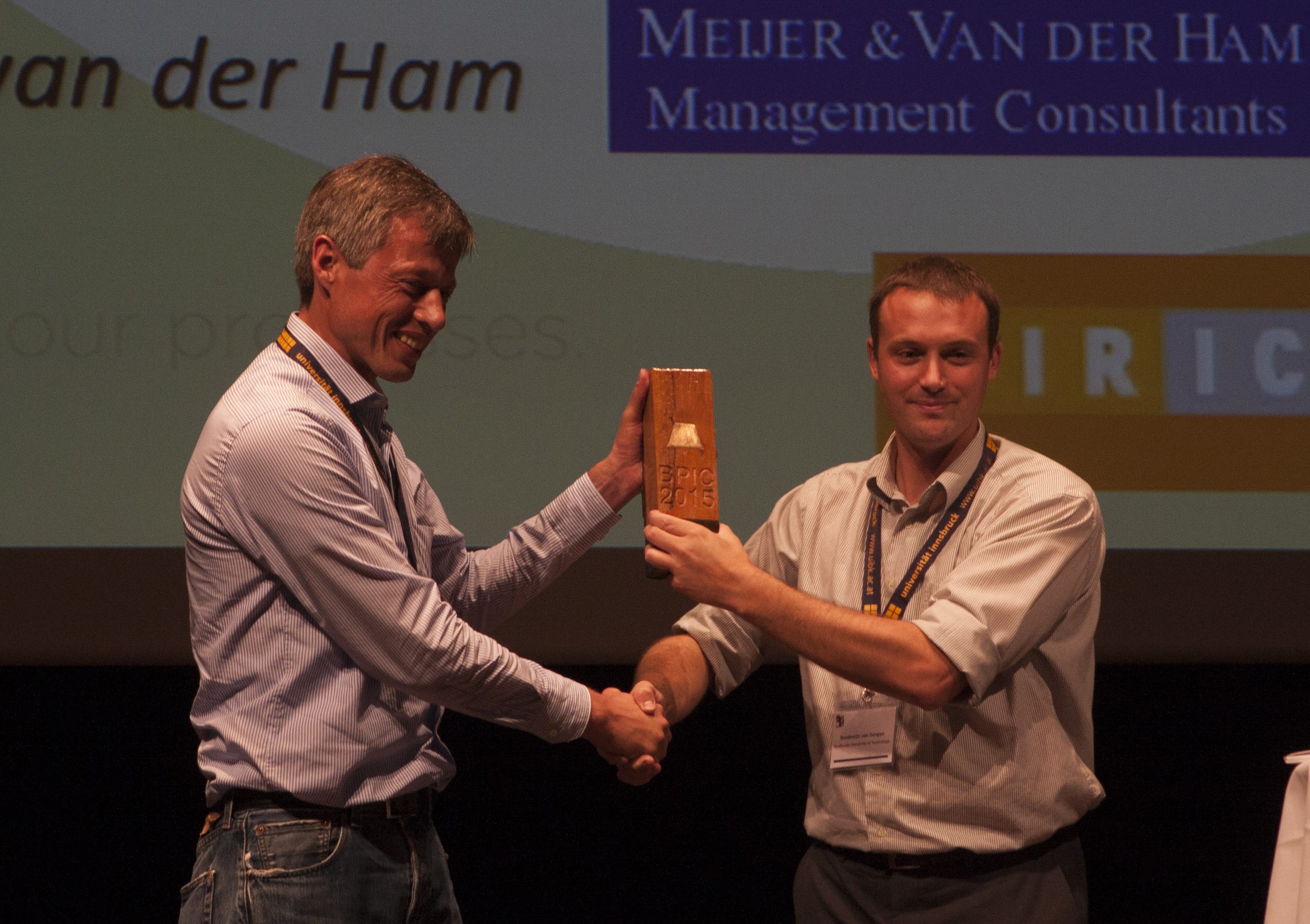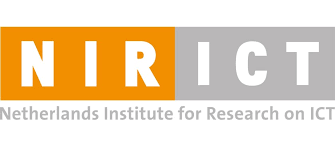Business Processing Intelligence Challenge (BPIC)
Fifth International Business Process Intelligence Challenge (BPIC’15)
In this challenge, we provide participants with a real-life event log, and we ask them to analyze these data using whatever techniques available, focusing on one or more of the process owner's questions or proving other unique insights into the process captured in the event log.
We strongly encourage people to use any tools, techniques, methods at their disposal. There is no need to restrict to open-source tools, and proprietary tools as well as techniques developed or implemented specifically for this challenge are welcome.
The winner will be announced at the Workshop on August 31st 2015.
Read more about the challenge at the Fluxicon blog
Important Dates
| Abstract submission deadline: | |
| Report submission deadline: | |
| Announcement of winners: | at the 11th Workshop on Business Process Intelligence (BPI 15), |
| Innsbruck, Austria, 31st August 2015 |
Case
This year’s data is provided by five Dutch municipalities. The data contains all building permit applications over a period of approximately four years. There are many different activities present, denoted by both codes (attribute concept:name) and labels, both in Dutch (attribute taskNameNL) and in English (attribute taskNameEN).
The cases in the log contain information on the main application as well as objection procedures in various stages. Furthermore, information is available about the resource that carried out the task and on the cost of the application (attribute SUMleges).
The processes in the five municipalities should be identical, but may differ slightly. Especially when changes are made to procedures, rules or regulations the time at which these changes are pushed into the five municipalities may differ. Of course, over the four year period, the underlying processes have changed.
The municipalities have a number of questions, outlined below:
- What are the roles of the people involved in the various stages of the process and how do these roles differ across municipalities?
- What are the possible points for improvement on the organizational structure for each of the municipalities?
- The employees of two of the five municipalities have physically moved into the same location recently. Did this lead to a change in the processes and if so, what is different?
- Some of the procedures will be outsourced from 2018, i.e. they will be removed from the process and the applicant needs to have these activities performed by an external party before submitting the application. What will be the effect of this on the organizational structures in the five municipalities?
- Where are differences in throughput times between the municipalities and how can these be explained?
- What are the differences in control flow between the municipalities?
Log Files
There are five different log files available. Events are labeled with both a code and a Dutch and English label. Each activity code consists of three parts: two digits, a variable number of characters, and then three digits. The first two digits as well as the characters indicate the subprocess the activity belongs to. For instance ‘01_HOOFD_xxx’ indicates the main process and ‘01_BB_xxx’ indicates the ‘objections and complaints’ (‘Beroep en Bezwaar’ in Dutch) subprocess. The last three digits hint on the order in which activities are executed, where the first digit often indicates a phase within a process.
Some statistics on the logs:
- Log 1: 1199 cases, 52217 events, 398 event classes, 10.4121/uuid:a0addfda-2044-4541-a450-fdcc9fe16d17. Please use this DOI in any reference to the dataset.
- Log 2: 832 cases, 44354 events, 410 event classes, 10.4121/uuid:63a8435a-077d-4ece-97cd-2c76d394d99c. Please use this DOI in any reference to the dataset.
- Log 3: 1409 cases, 59681 events, 383 event classes, 10.4121/uuid:ed445cdd-27d5-4d77-a1f7-59fe7360cfbe. Please use this DOI in any reference to the dataset.
- Log 4: 1053 cases, 47293 events, 356 event classes, 10.4121/uuid:679b11cf-47cd-459e-a6de-9ca614e25985. Please use this DOI in any reference to the dataset.
- Log 5: 1156 cases, 59083 events, 398 event classes, 10.4121/uuid:b32c6fe5-f212-4286-9774-58dd53511cf8. Please use this DOI in any reference to the dataset.
Each trace and each event, contain several data attributes that can be used for various checks and predictions. Furthermore, some employees may have performed tasks for different municipalities, i.e. if the employee number is the same, it is safe to assume the same person is being identified.
The entire collection can be found under DOI: 10.4121/uuid:31a308ef-c844-48da-948c-305d167a0ec1
Fluxicon has prepared a Disco project with the data above. This can be accessed here:http://coda.fluxicon.com/assets/downloads/Datasets/BPIC-2015.dsc If you have any questions about Disco or need more explanations about the BPI challenge in Disco, please refer to http://fluxicon.com/blog/2015/05/bpi-challenge-2015/
Challenges
Just like last year, the challenge is split into two separate challenges. The first challenge is specifically targeting researchers and professionals in the area of business process intelligence, where the second challenge is targeting students (Bachelor, Master and PhD Students).
For all participants, Fluxicon has prepared the datasets for use in their own toolset Disco. You can get access to this tool for the purpose of this challenge shortly, please stay tuned on the details.
Submissions
We received 9 submissions of sufficient quality for publication. Below the submissions are listed in order of scoring by the jury:
- Irene Teinemaa, Anna Leontjeva and Karl-Oskar Masing. BPIC 2015: Diagnostics of Building Permit Application Process in Dutch Municipalities
- Liese Blevi and Peter Van den Spiegel. Discovery and analysis of the Dutch permitting process
- Prabhakar M. Dixit, Bart F.A. Hompes, Niek Tax and Sebastiaan J. van Zelst. Handling of Building Permit Applications in The Netherlands: A Multi-Dimensional Analysis
- Niels Martin, Gert Janssenswillen, Toon Jouck, Marijke Swennen, Mehrnush Hosseinpour and Farahnaz Masoumigoudarzi. An Exploration and Analysis of The Building Permit Application Process in Five Dutch Municipalities
- Josef Martens and Paul Verheul. Social Performance Review of 5 Dutch Municipalities: Future Fit Cases for Outsourcing?
- Jan Suchy and Milan Suchy. Process Mining techniques in complex Administrative Processes
- Hyeong Seok Choi, Won Min Lee, Ye Ji Kim, Jung Hoon Lee, Chun Hoe Kim, Yu Lim Kang, Na Rae Jung, Seung Yun Kim, Eui Jin Jung and Na Hyeon Kim. Process Mining of Five Dutch Municipalities’ Building Permit Application Process: The Value Added in E-Government
Prizes
The first prize in the regular competition is a special award trophy for the winner, kindly offered by Fluxicon. NIRICT is kindly sponsoring an iPad mini for each member of the winning student team.
The prizes were handed over during the conference dinner of the BPM conference in Innsbruck.
 Ube van der Ham receiving the trophy |
 The trophy |
 Anna and Irene receiving the certificate |
Sponsors
 http://www.fluxicon.com/ |
 https://www.win.tue.nl/ |
 http://www.nirict.nl/ |
|
Fluxicon - Process mining for professionals Founded in 2009 by Anne Rozinat and Christian W. Günther, Fluxicon has been at the forefront of the process mining movement ever since. Our process mining software Disco is based on proven scientific research, and loved by professionals worldwide for setting the gold standard in performance and user experience. Disco makes process mining easy, so that you can focus on your business. |
TU/e - Mathematics & Computer Science The Architecture of Information Systems (AIS) research group investigates methods, techniques and tools for the design and analysis of process-aware information systems. They are not only interested in these information systems and their architecture, but also try to model and analyze the business processes and organizations they support. |
NIRICT NIRICT is the Netherlands Institute for Research on ICT and comprises all ICT research of the three universities of technology in the Netherlands. NIRICT brings together over 70 research groups from the disciplines Computer Science, Electrical Engineering, Mathematics and several ICT application domains. More than 1200 researchers collaborate, which makes NIRICT the most important academic research partner in the Netherlands. |
